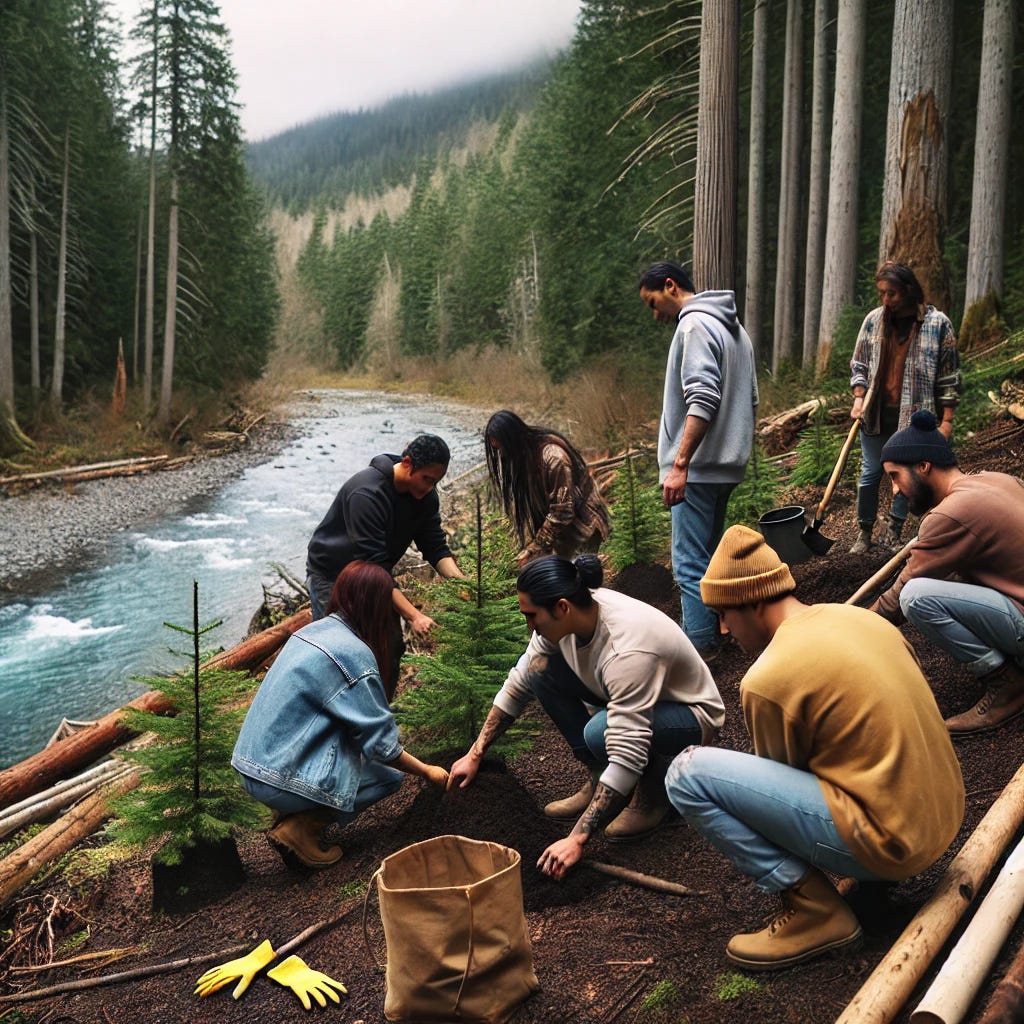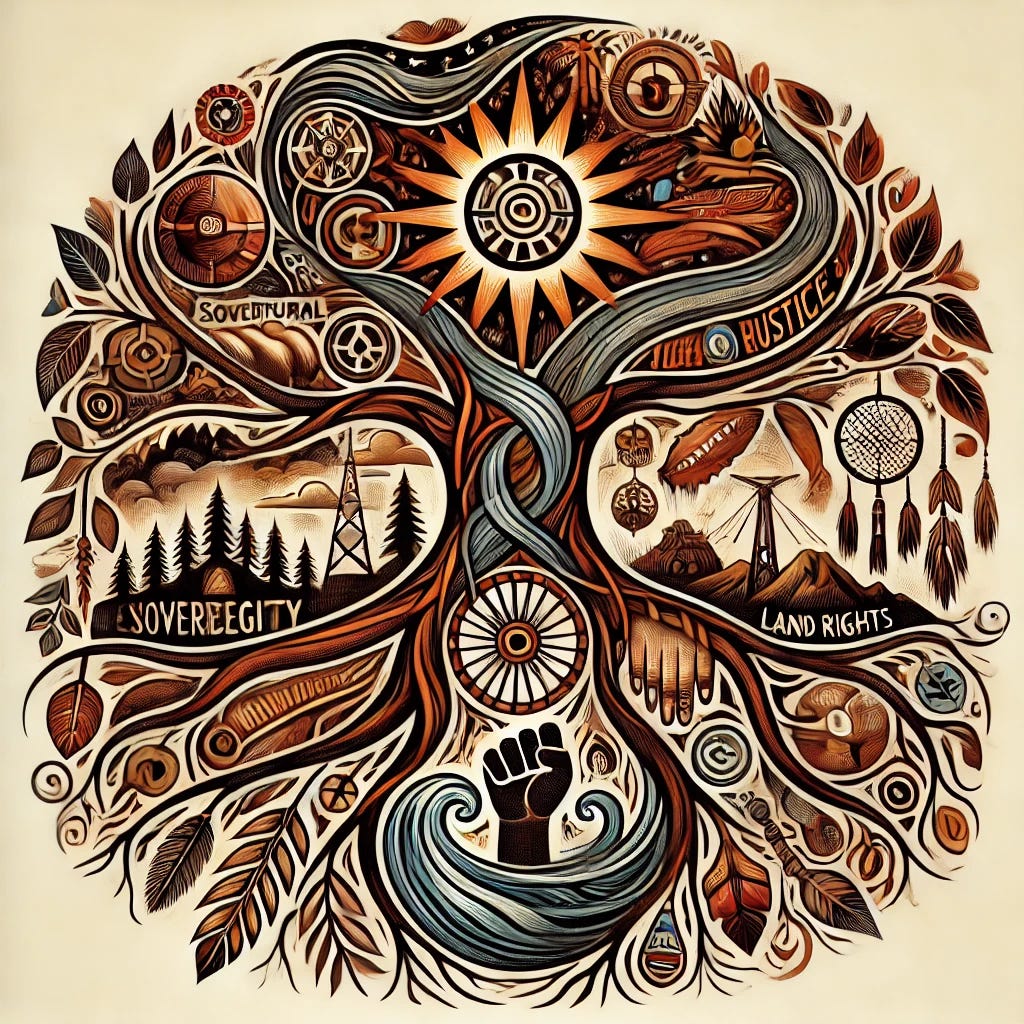🟧Indigenous & Tribal Rights
A ranked guide to advocacy groups supporting Indigenous sovereignty, cultural preservation, and tribal justice.
This resource highlights influential advocacy groups dedicated to supporting Native Americans, Indigenous people, and tribal rights across the United States, including prominent organizations and tribes based in Washington state.
Each group provides valuable resources, information, and opportunities for activism on issues affecting Indigenous communities, from sovereignty and health disparities to environmental justice and cultural preservation.
National Congress of American Indians (NCAI)
A leading voice for tribal nations, advocating for the rights and self-determination of Indigenous peoples through policy development and education.
American Indian Movement (AIM)
Founded to address issues of sovereignty, treaty rights, and social justice, AIM continues to advocate for the rights of Native Americans through activism and community engagement.
Native American Rights Fund (NARF)
A nonprofit legal organization dedicated to protecting the rights of Native Americans and providing legal assistance on issues of tribal sovereignty and treaty rights.
Indigenous Environmental Network (IEN)
Advocates for Indigenous rights in environmental justice, promoting sustainable practices, and fighting against climate change impacts on Indigenous lands.
National Indigenous Women’s Resource Center (NIWRC)
Dedicated to addressing violence against Native women and promoting their rights through advocacy, education, and resources.
Native Organizers Alliance (NOA)
A Seattle-based national grassroots group that trains Indigenous leaders and supports tribal movements for self-determination and political engagement.
Affiliated Tribes of Northwest Indians (ATNI)
A coalition representing tribes in the Northwest, advocating for Indigenous rights, sovereignty, and self-determination while fostering intertribal collaboration.
National Indian Child Welfare Association (NICWA)
Works to promote the well-being of Native children and families through advocacy, education, and support for culturally appropriate services.
Urban Indian Health Institute (UIHI)
A Seattle-based tribal epidemiology center advocating for better health outcomes for urban Native communities through research and policy.
First Nations Development Institute
Focuses on economic development and empowerment for Native communities, providing grants and resources to support Indigenous-led initiatives.
Columbia River Inter-Tribal Fish Commission (CRITFC)
Advocates for the fishing rights and interests of four Columbia River tribes in Washington, Oregon and Idaho, focusing on sustainable fishery practices and treaty rights.
Northwest Justice Project – Native American Unit
Provides legal aid to Native Americans in Washington, focusing on sovereignty, treaty rights, and systemic injustices.
Northwest Indian Fisheries Commission (NWIFC)
Supports treaty tribes in Washington in managing fisheries, protecting treaty rights, and restoring salmon populations.
American Indian Health Commission (AIHC)
Focuses on improving the health and well-being of American Indians in Washington through advocacy, partnerships, and health programs.
National Indian Education Association (NIEA)
Advocates for Indigenous education policy, cultural preservation, and equitable access to quality education for Native students across the U.S.
Tribal and Indigenous Advocacy in Washington State
The advocacy guides below include a Tribal Advocacy & Indigenous Leadership section:
Related Advocacy Issues
Sovereignty and Self-Determination: Advocating for tribal sovereignty and self-governance, ensuring Indigenous nations can manage their land, culture, and resources.
Environmental Justice: Addressing the impact of environmental degradation on Indigenous lands, including climate change, resource extraction, and pollution.
Violence Against Women: Raising awareness and pushing for stronger protections against domestic violence, trafficking, and sexual assault affecting Indigenous women.
Legal and Political Advocacy: Strengthening legal protections for Indigenous people through policy changes, voting rights initiatives, and legal support services.
Cultural Preservation: Protecting Indigenous languages, traditions, and historical sites while promoting culturally relevant education and representation.
Health Disparities: Advocating for improved health care access, mental health services, and solutions to the disproportionate health challenges faced by Native communities.
Fishing and Water Rights in Washington: Defending tribal treaty rights to fish and manage water resources, ensuring sustainable access and enforcement of legal protections.
Land Rights and Restoration: Supporting the return of ancestral lands to tribes, securing sacred sites, and resisting harmful land development projects.
Urban Native Rights: Addressing the needs of Native people living in cities, including health care, housing, representation, and cultural support networks.



